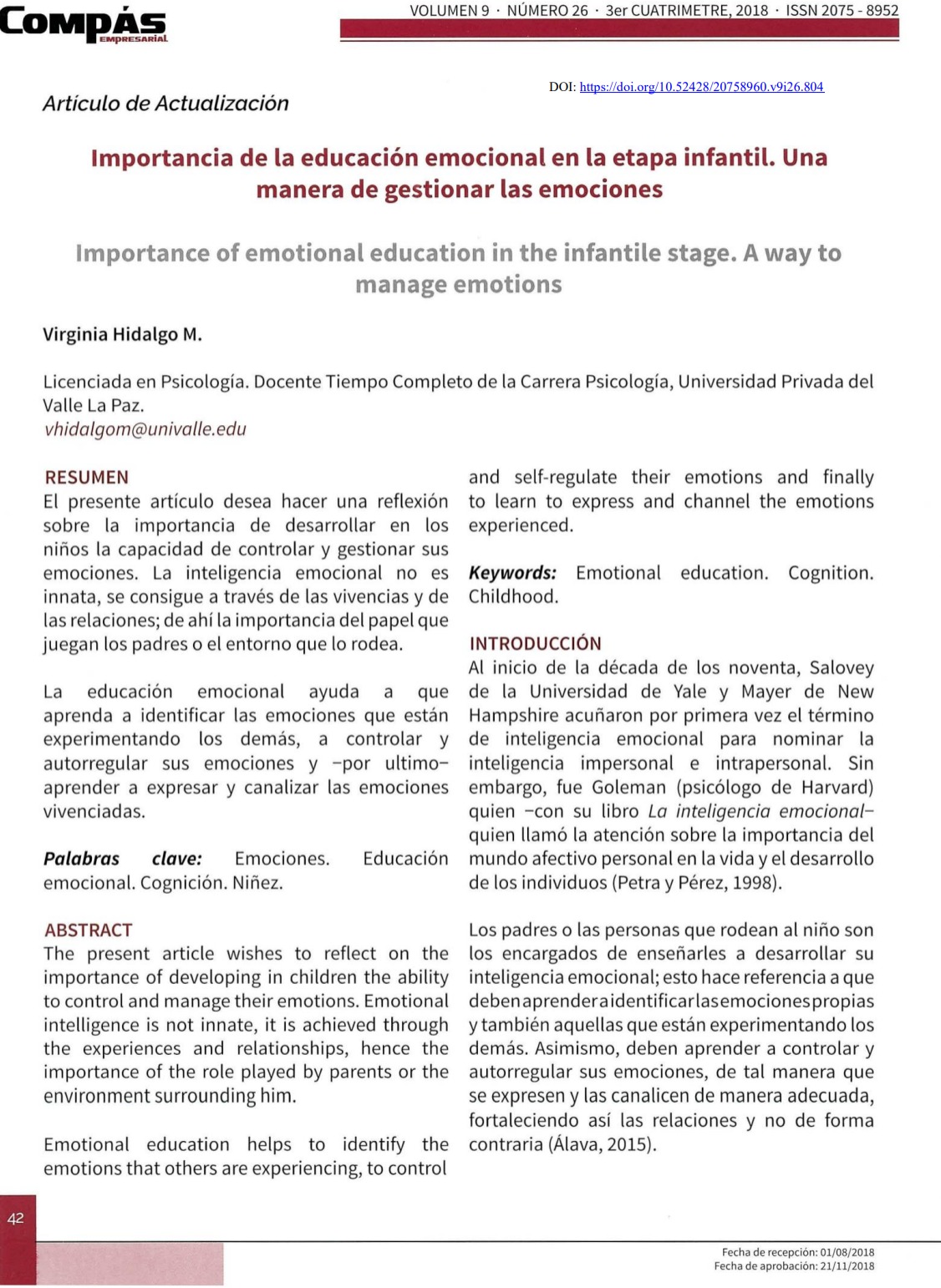lmportance of Emotional Education in the Infantile Stage. A Way to Manage Emotions
DOI:
https://doi.org/10.52428/20758960.v9i26.804Keywords:
Emotional education, Cognition, ChildhoodAbstract
The present article wishes to reflect on the importance of developing in children the ability to control and manage their emotions. Emotional intelligence is not innate, it is achieved through the experiences and relationships, hence the importance of the role played by parents or the environment surrounding him. Emotional education helps to identify the emotions that others are experiencing, to control and self-regulate their emotions and finally to learn to express and channel the emotions experienced.
Downloads
References
(1) Alava, S. (2015) Como desarrollar la inteligencia emocional de los niños. Guía infantil. Consultado el 1 de septiembre de 2018. Recuperado de: https://www.guiainfantil.com
(2) Petra, M. y Pérez A. (1998). El desarrollo emocional infantil (0-6 Años). Ponencia presentada en el Congreso de Madrid S/T. Consultado el 1 de septiembre de 2018. Recuperado de: http://www.waece.org/biblioteca/pdfs/d069.pdf
(3) Roldan, J. (2016) La importancia de la educación emocional infantil. Etapa Infantil. Consultado el 2 de septiembre de 2018. Recuperado de: https://www.etapainfantil.com/importancia-educacion-emocional-infantil
(4) González, P. (2016). Claves de la educación emocional infantil. La mente es maravillosa. Consultado el 2 de septiembre de 2018. Recuperado de: https://lamenteesmaravillosa.com/claves-la-educaeion-emocionaI-infantil/
(5) Sánchez, A. (2017) "La importancia de la inteligencia emocional en los niños, ¿Cómo desarrollarla?". Consultado el 2 de septiembre de 2018. Recuperado: https://www.educapeques.com/escuela-de-padres/imporiancia-de-la-inteIigencia-emocional.html

Downloads
Published
How to Cite
Issue
Section
License
Copyright (c) 2018 Virginia Hidalgo

This work is licensed under a Creative Commons Attribution 4.0 International License.
Authors who publish with this journal agree to the following terms:
- Authors retain copyright and grant the journal right of first publication with the work simultaneously licensed under a Creative Commons Attribution License 4.0 that allows others to share the work with an acknowledgement of the work's authorship and initial publication in this journal.
- Authors are able to enter into separate, additional contractual arrangements for the non-exclusive distribution of the journal's published version of the work (e.g., post it to an institutional repository or publish it in a book), with an acknowledgement of its initial publication in this journal.
- Authors are permitted and encouraged to post their work online (e.g., in institutional repositories or on their website) prior to and during the submission process, as it can lead to productive exchanges, as well as earlier and greater citation of published work.









